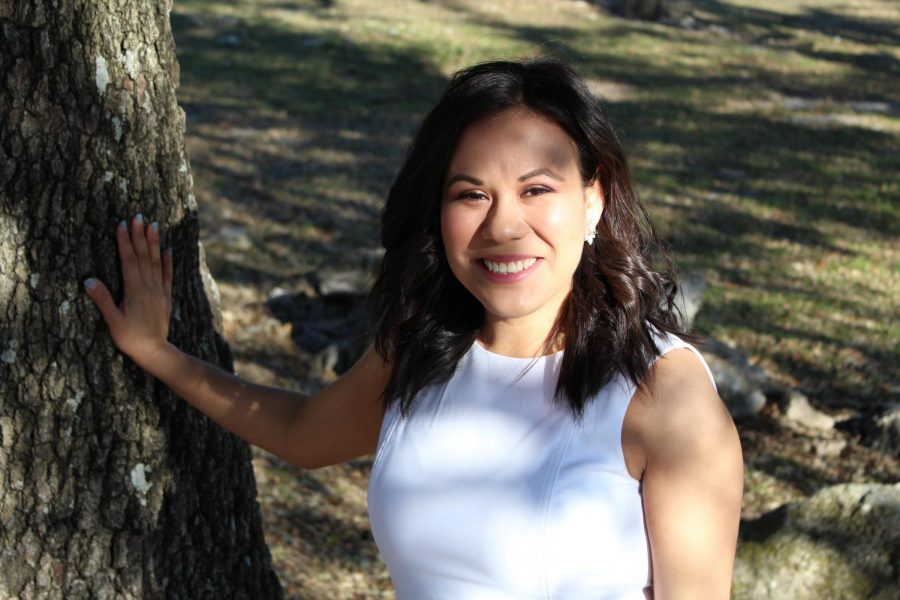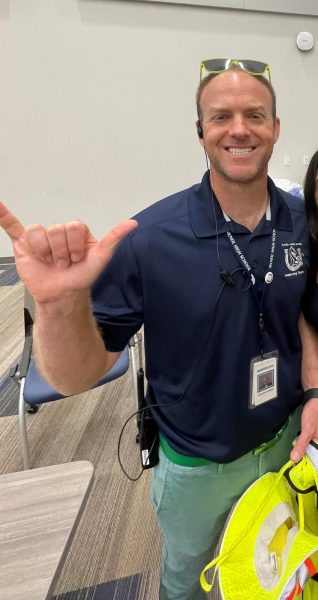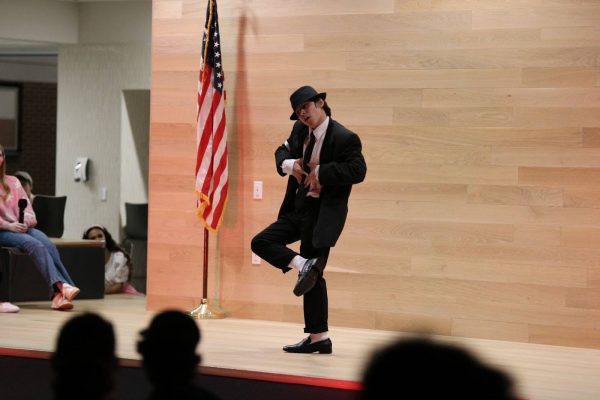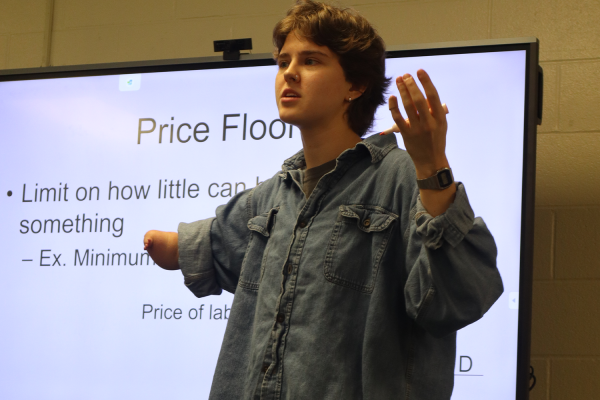Fate of the American Dream
Faculty member faces the unknown in the wake of DACA reforms
Image by Erika Rojas
As English II teacher Blanca Gonzalez pulls out from the McNeil parking lot after a long day at work, she looks back at the campus afraid that it will be the last time she will see her students. Gonzalez has been directly impacted by the termination of the Deferred Action for Childhood Arrivals reform.
“My worst fear since November is that I will be pulled over and handcuffed in front of my son,” Gonzalez said. “From there I will be taken to a detention center, where I will be booked, processed, and deported, all in a matter of two to three days. I will be dropped off in Juarez, Mexico, which is notorious for violence, gang activity, and cartels, with only the things I had with me when I was arrested.”
Gonzalez was born in Zacatecas, Mexico, and came to the United States at the age of 4 when her parents hoped to gain a more secure environment for her upbringing.
“Mexico is a country that my parents left in the first place to escape poverty, violence, and ignorance,” Gonzalez said. “A place where all I have are hazy memories of a bench pushed against a wall to act as a makeshift crib and a dirt floor.”
Because of their birthright, Americans sometimes take for granted freedom, free speech, security, and the right to education. One of the most controversial dilemmas the United States faces at the moment is the consideration that more than 700,000 DACA recipients will be deported after losing their legal status. This immigration policy protected from deportation eligible immigrant youth who came to the United States as children. Not only does it protect them from deportation, but it also gives them an opportunity for work permits.
“When I graduated from the University of Texas, I was immediately able to start looking for jobs,” Gonzalez said.
Dreamers – as they are called – have had to deal with the uncertainty and fear of losing a life they worked hard to create for themselves after President Donald Trump ended the program on Sept. 5, 2017. Not only did Gonzalez have to learn a new language upon coming to the United States, but her academic and social success depended solely on her desires. Since her mother dropped out of school in third grade and her father never attended school at all, she was on her own when it came to her education. Despite this, she was the first in her family to graduate from a four-year university.
“I paid my way through college working at a restaurant,” Gonzalez said. “The entire time that I was in school, I knew that there was a possibility that I would never be able to use my degree. Fortunately, before my graduation, President Barrack Obama passed DACA. Through DACA, I was able to exercise my degree.”
As a respected faculty member and mother, Gonzalez mentors others who experience the same plight. It is not unusual to see students in and out of her classroom who do not have her on their schedules.
“I have become very attached to my students and have loved every minute of my job,” Gonzalez said. “But this past year I have had to sit with students as they cry because they are afraid of losing their parents.”
Her humor and nurturing demeanor provide a safe haven and calming retreat from daily stresses. The fuel that motivates her in coping with this adversity is her students and their support.
“I was overwhelmed with the amount of support they have given me. Especially because it is a topic that many didn’t know a lot about.”
Although the future seems uncertain, she is trying to hold on to hope. After all, it was the same hope that initiated her parents’ quest for a better life. Not only did she achieve that dream, but she has exceeded it.
“DACA Dreamers are a well-respected group among most Americans,” Gonzalez said. “There is optimism that people will be sympathetic and understanding to our cause.”
Your donation will support the student journalists of McNeil High School. Your contribution will allow us to purchase equipment and cover our annual website hosting costs.









